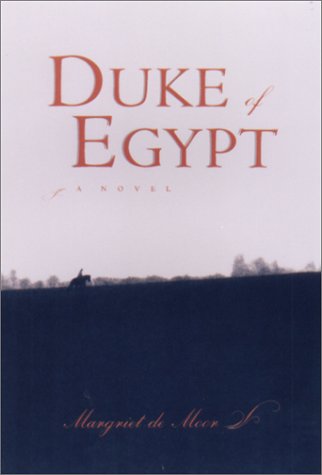Duke of Egypt
Set principally during the 1960s and 1970s, Duke of Egypt illuminates the plight of the European gypsies who, distrusted by most, could never settle in one town or even one country for long. Often members of one family would hold passports from different nations. Multi-talented, the gypsies clung to their nomadic lifestyle, despite the routine of authorities escorting them beyond borders and boundaries. This story’s main character, Joseph, curtails his wandering after meeting Lucie, a Dutch woman who rears horses at her father’s farm. Yet although seemingly content with Lucie, with the horses, and with caring for the farm, Joseph still takes to the road each summer.
This novel unfolds in a very non-linear fashion. The relationship between Lucie and Joseph develops amid stories Joseph tells of his travels, and historical anecdotes of treatment the gypsies received at the hands of settled people between the 18th century and World War II. Many of these mistreated gypsies are members of Joseph’s own family.
It is difficult to say more without spoiling the plot. But to unravel this plot does require perseverance. Despite well-placed imagery and deft research, the characters of this novel never fully came alive for me. I think the constant digressions to another time, another place—meant, I suppose, to emulate the story-telling of the gypsies—and the use of a narrator whose identity is never wholly revealed, are the reasons for this. I sensed that I should have been moved by this novel, but although the subject matter fascinated me, I felt very little when I read the final page.










